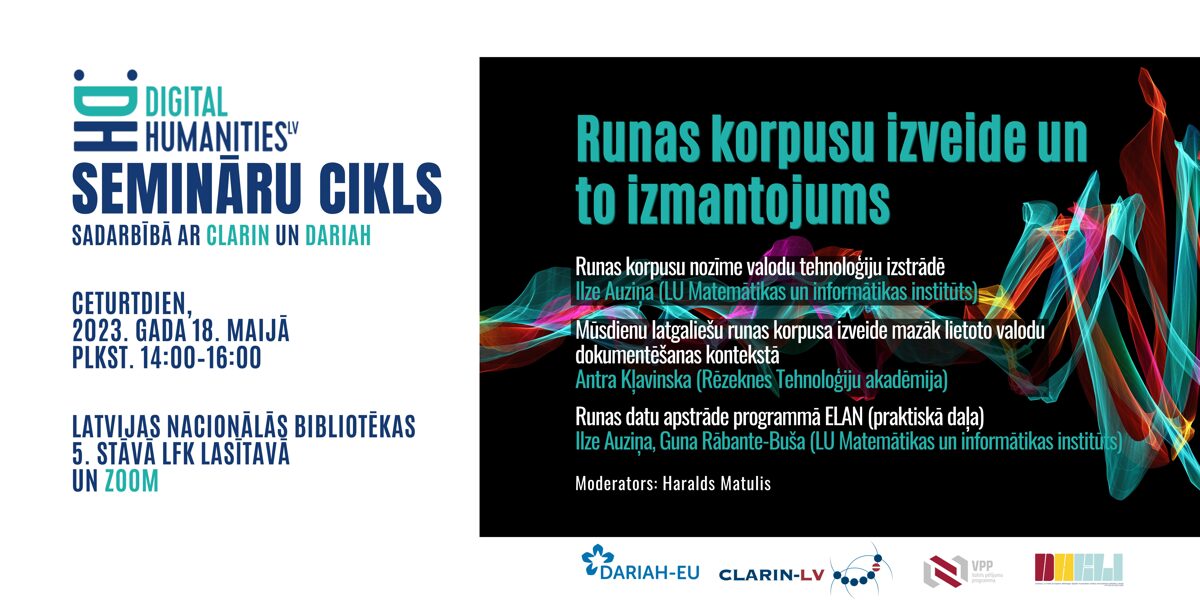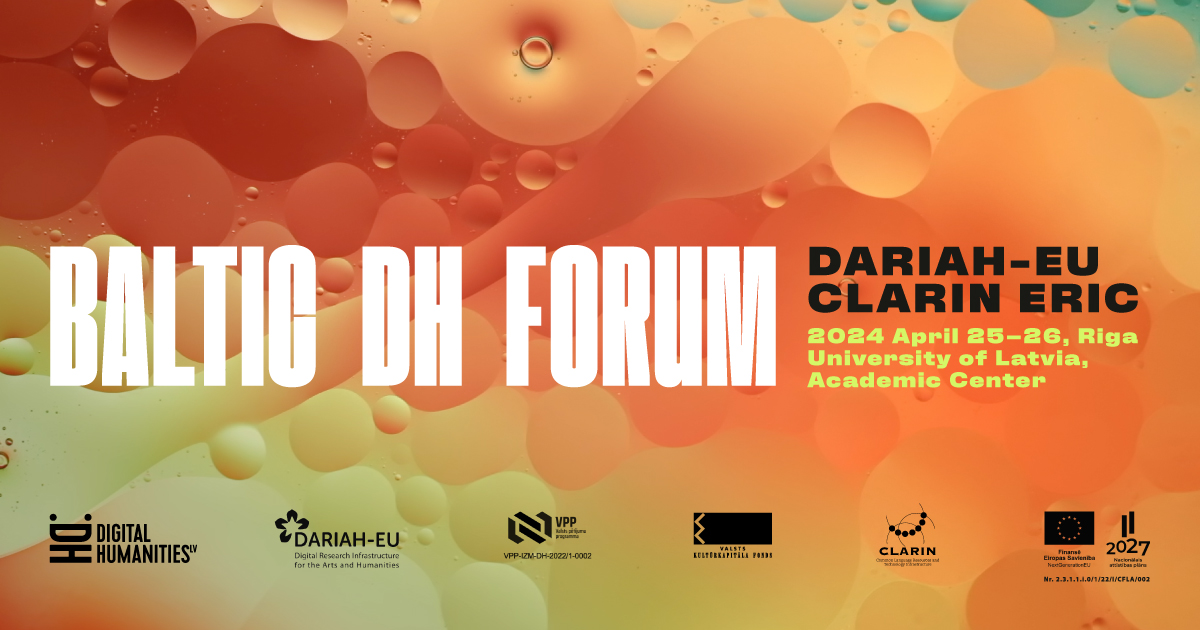6-7 May Jan Hajič, PhD, will give lectures and workshops on Digital Musicology and Computer Analysis of Gregorian Chants in Riga
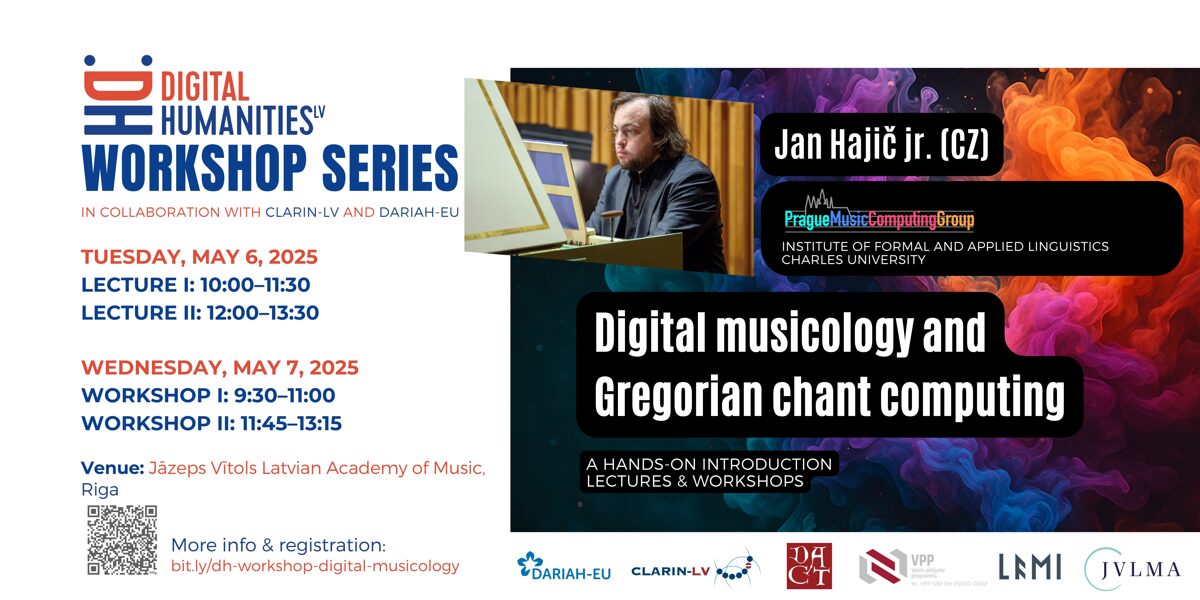
On 6-7 May, Jan Hajič, PhD will give a hands-on introduction to musicology in the digital domain for the intrepid musicologists at the Jāzeps Vītols Latvian Academy of Music (K. Barona street 1). The program is intended for musicologists (and musicians) at all levels of seniority, from undergrads thinking about their theses to senior researchers thinking about their grants. In two lectures and two workshops, the series will introduce digital musicology and showcase its strengths and limitations. No computing background necessary, though musically inclined computer scientists are most welcome to join as well.
Call for applications for the 7th Baltic Summer School of Digital Humanities
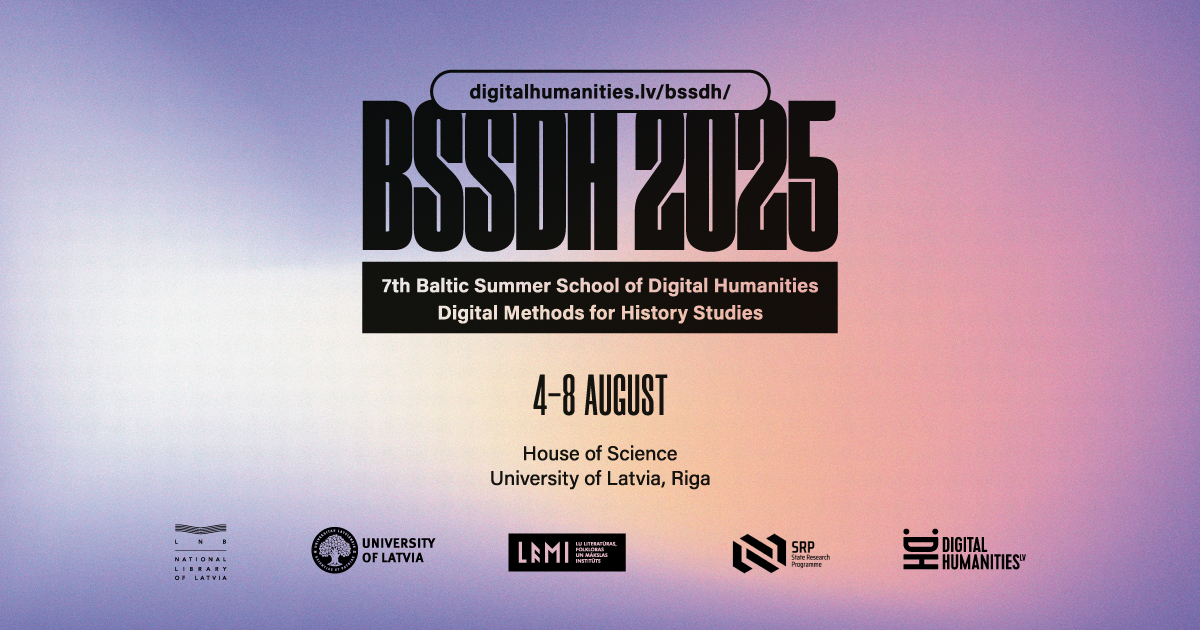
Applications are now open for the 7th Baltic Summer School of Digital Humanities “Digital Methods for History Studies”, which will take place from 4 to 8 August at the University of Latvia (UL), House of Sciences, Riga. This year’s Summer School will focus on topics relevant to history researchers, students, and anyone interested in exploring history and humanities through digital methods. Lectures and workshops will cover subjects such as automated digitization of handwritten texts, network visualization, historical networks, spatial analysis and mapping (GIS), as well as a practical overview of the emerging AI technologies and their use in humanities research, by using chat prompting versions and also accessing LLM (large language models) with API. The full programme will be finalized during March.
All interested applicants are invited to apply by 20 March by filling in this form.
More detailed information about the Summer School is available in English here.
CFP of 60th International Academic Conference in Honour of Prof. Arturs Ozols “The language system, morphemics and derivational morphology”
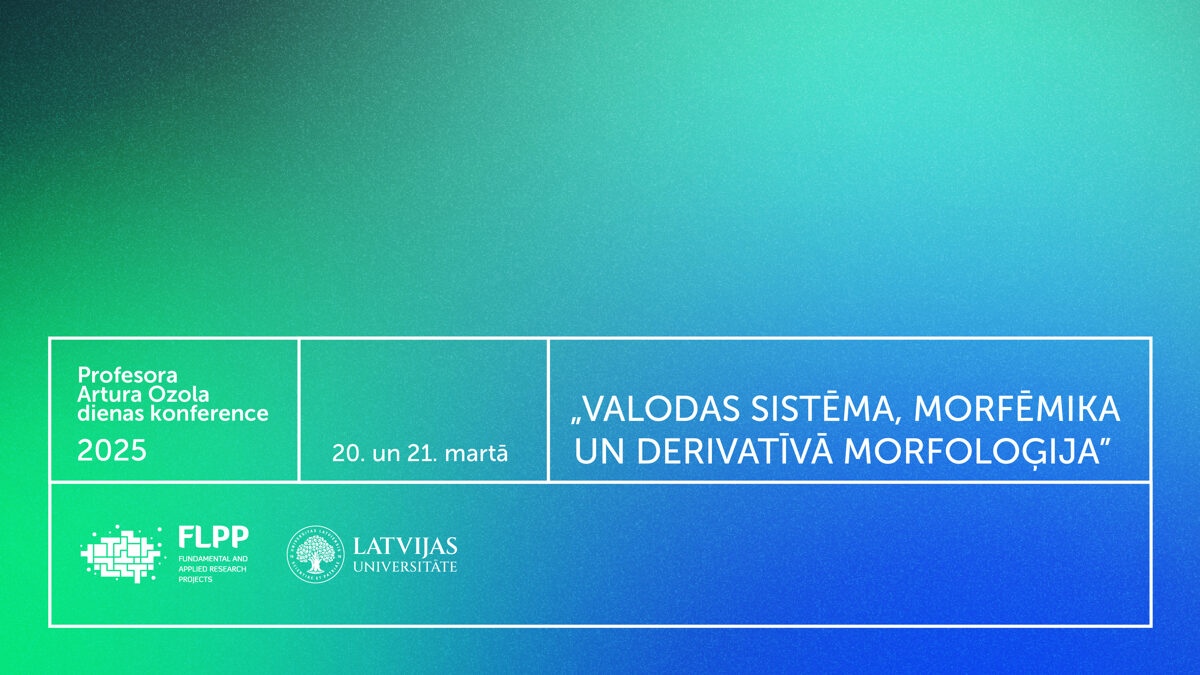
The Department of Latvian and Baltic Studies at the University of Latvia invites submissions of abstracts for the 60th International Academic Conference in Honour of Prof. Arturs Ozols “The language system, morphemics and derivational morphology”, to be held on March 20–21, 2025.
The focus of the 2025 conference is on the grammatical and lexical system of language, its architecture, description and interpretation from a synchronic and diachronic perspective, with a particular emphasis on morphemics and word formation.
CFP: Grammar and corpora, 10th international conference on Grammar and Corpora
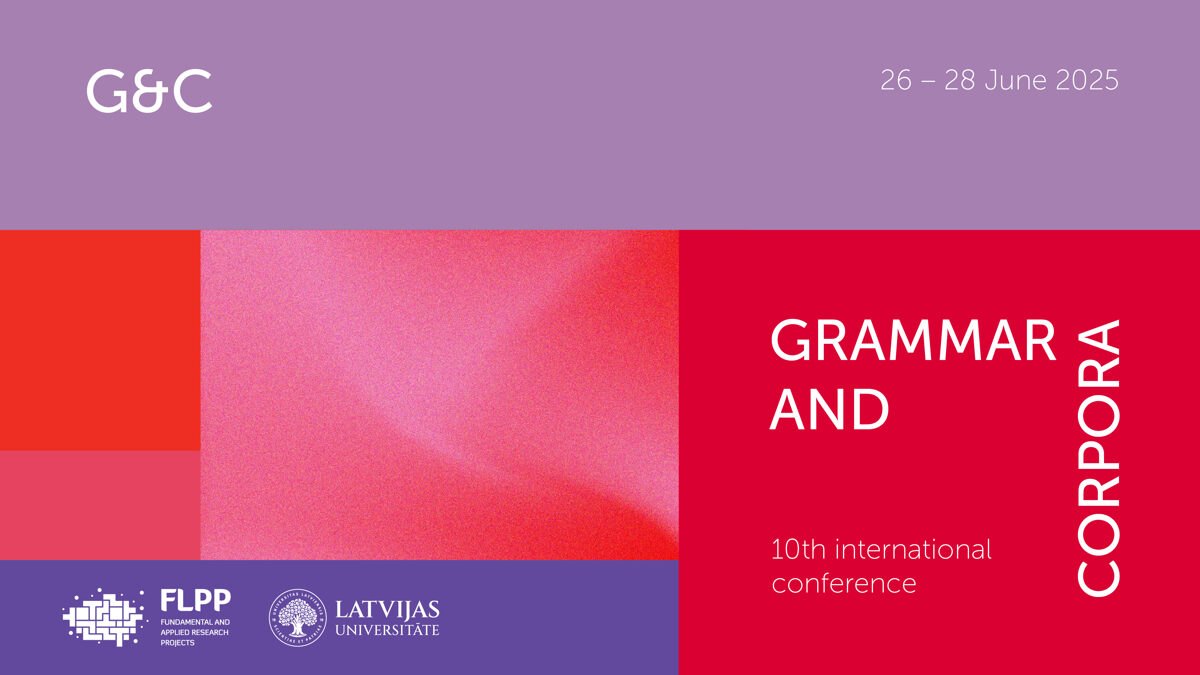
In recent years, the field of linguistics has seen an increasing demand for corpus-based analysis of natural language data amidst a general revival of interest in the empirical foundations of linguistic theory. Contemporary digital corpora offer as yet unprecedented opportunities for all kinds of linguistic research, where traditional linguistic analysis in its various theoretical and methodological paradigms originating in part in different philological and linguistic traditions of the past co-exists with and is reinforced by advanced statistical and corpus-linguistic methods made possible by modern data processing and annotation techniques. Since corpora can be used in both synchronic and diachronic analyses of language material, they provide an ideal basis not only for effectively utilizing traditional and already established methods, but also for developing new theoretical and empirical approaches to studying the grammatical system of natural languages and language varieties.
The Department of Latvian and Baltic Studies of the Faculty of Humanities of the University of Latvia is pleased to announce the 10th international conference on Grammar and Corpora (G&C), which will be held on-site at the University of Latvia from Thursday, 26 June 2025, to Saturday, 28 June 2025.
The conference continues the series of “Grammar and Corpora” conferences, which began in Prague, at Charles University, in 2005. Subsequently, G&C conferences have been held at various locations and universities: in Liblice (2007), Prague (2012), Warszaw (2014), Mannheim (2009, 2016), Paris (2018), Kraków (2020) and Ghent (2022). The 2025 “Grammar and Corpora” conference in Riga, at the University of Latvia, seeks to provide a forum for exchange of novel and creative ideas between researchers interested in studying various aspects of grammar and its interfaces, in the broadest sense, using different types of corpora and corpus-linguistic approaches, methods and techniques.
The 6th Baltic Summer School of Digital Humanities is taking place
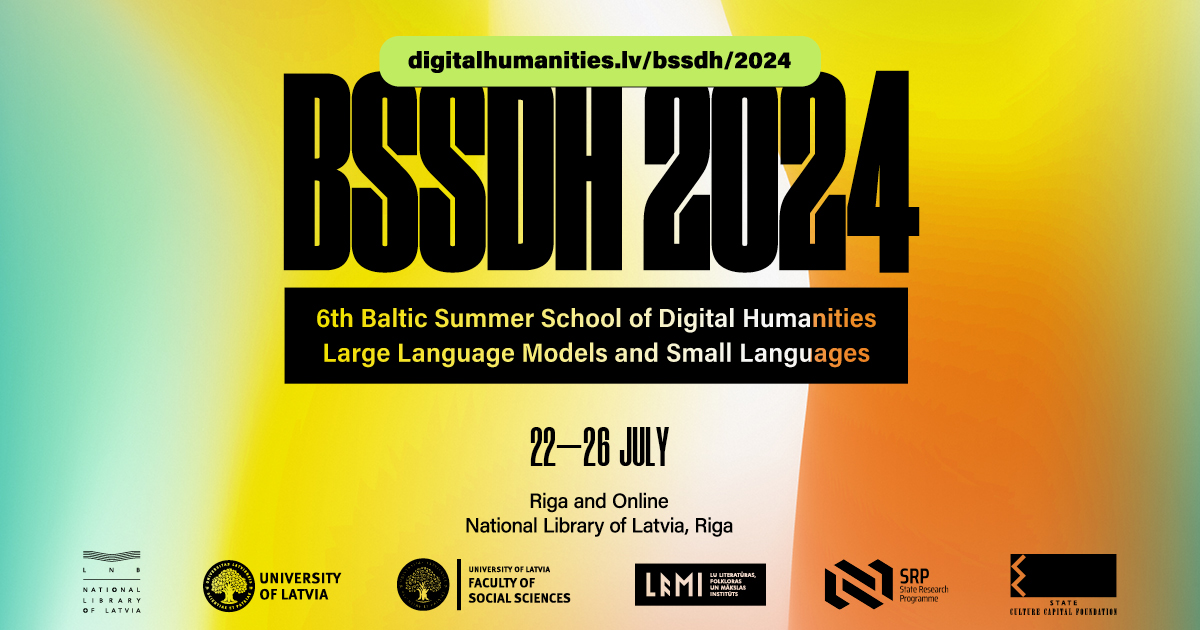
From July 22 to 26, the annual Baltic Summer School of Digital Humanities (BSSDH 2024) takes place in Riga, gathering more than 80 participants from 18 countries. This year's BSSDH focuses on large language models and small languages, a particularly significant theme in Latvian humanities research. The educational program of the summer school involves both foreign instructors and Latvian researchers and lecturers.
The Baltic Summer School of Digital
Humanities is now in its sixth year. It is an international
intensive continuing education program that offers researchers,
lecturers, and students of the humanities and social sciences, as
well as professionals from archives, libraries, and museums, the
opportunity to acquire various digital research skills – from those
needed for working with humanities data to skills in visualizing
and interpreting data analysis results.
The organizers of BSSDH 2024 are the National Library of Latvia, the Institute of Literature, Folklore, and Art of the University of Latvia, and the Faculty of Social Sciences of the University of Latvia, which provides students the opportunity to earn credit points for the completed program.
Workshop "Opening the Trilogy: Folklore Taxonomies & Annotated Texts for Reproducible Research"

On June 20, within the framework of the
Congress of the International Society for Research on Folklore
Narratives (https://en.lfk.lv/isfnr2024), a
digitalhumanities.lv workshop will take place at the House of
Nature of the Academic Centre of the University of Latvia, in
collaboration with CLARIN-LV and DARIAH-EU. It will be moderated by
independent researcher Joshua
Hagedorn (USA). The hands-on workshop will be particularly
useful for folklore researchers and will focus on working with text
corpora.
Participants will be expected to participate actively, so a laptop and advance preparation by installing the necessary software will be required. No prior knowledge is required for this workshop.
The hands-on workshop will be held in person in English only.
Webinar “Tracing Nazi-Fascist violence to reinterpret World War II history. Deportation and war massacres in Italy between 1943 and 1945 from the archive to digital”
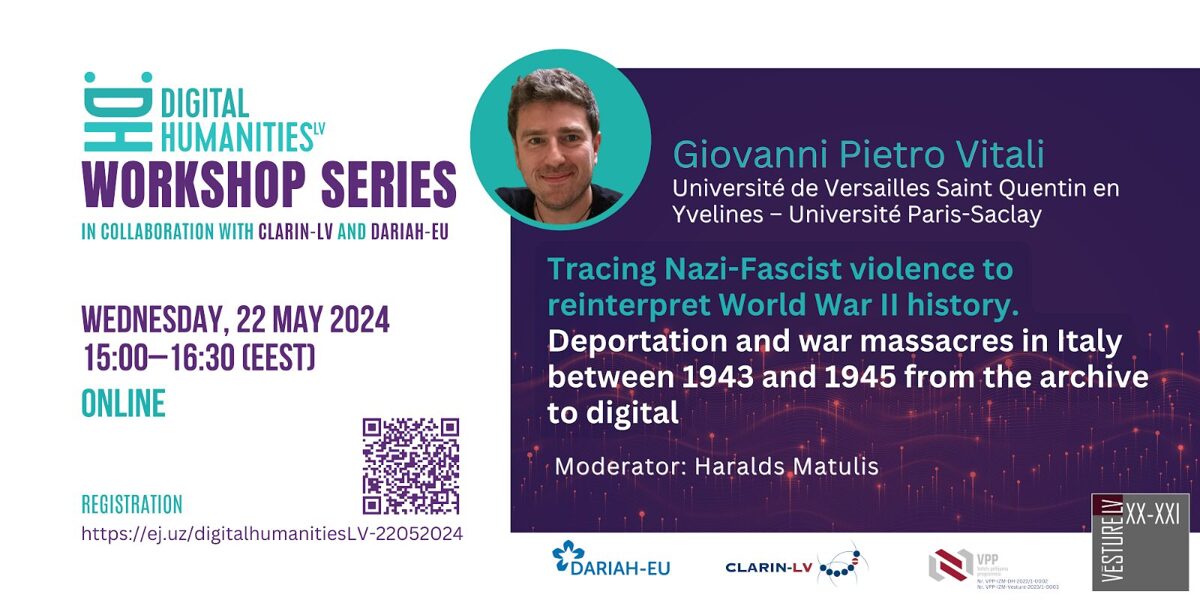
On 22 May at 15.00, the second seminar in
the digitalhumanities.lv series, organised in collaboration with
CLARIN-LV and DARIAH-EU, focusing on digital humanities and
historical research, will take place online. The aim of this
webinar is to reflect on the work of the historian faced with his
sources and the possibilities offered by digital tools. It presents
a 5-year work on archival sources on the violence inflicted on the
civilian population in Italy between 1943 and 1945, carried out
using data visualisation methods. The findings of this research,
carried out with the major institutes of historical memory of the
Second World War in Italy, will be presented but, above all, we
will pose a methodological reflection for all participants, trying
to share how the digital can confirm or question
historiography.
Recap of the Baltic Digital Humanities Forum
On 25 and 26 April, the first Baltic Digital Humanities Forum took place at the new Academic Centre of the University of Latvia, aiming to create a platform for the presentation and discussion of projects and research, digital tools and resources for Baltic DH researchers, practitioners and those interested. The opening speeches were given by the Latvian Minister of Education and Science Anda Čakša, the Vice-Rector of the University of Latvia Guntars Kitenbergs and the Estonian Ambassador in Latvia Eerik Marmei, highlighting the accomplishments so far and emphasising the importance of digital humanities for the development of the humanities.
The first day of the Baltic DH Forum discussed the current state of the art of the Baltic digital humanities, as well as the role of European research infrastructures in the humanities – CLARIN ERIC and DARIAH-EU. The panel discussion "Shaping Tomorrow: European Research Infrastructures in Humanities and the Role of National Policies" featured Uldis Berķis, expert from the Latvian Ministry of Education and Science, Tadas Juknevičius, Chair of the Science Division of the Lithuanian Ministry of Education, Science and Sport, Sally Chambers, Director of DARIAH-EU, and Krister Lindén from the CLARIN ERIC Board. The impact of research infrastructures on the development of the humanities and the future prospects for this research area were discussed. The following panel discussion "Baltic Digital Humanities Landscape" provided an in-depth insight into the trends in the Baltic digital humanities over the last decades. The first day was concluded with a DARIAH-EU Workshop, moderated by Sally Chambers, Director of DARIAH-EU and Researcher at the Ghent Centre for Digital Humanities.
Baltic Digital Humanities Forum to Convene in Riga
The Baltic Digital Humanities Forum, a key event for the digital humanities community in the Baltic region, will take place next week, on 25–26 April. Hosted by the University of Latvia in its new Academic Center, the DH Forum brings together researchers and practitioners from Estonia, Latvia, Lithuania and other countries, and provides a platform to explore the development and impact of digital humanities (DH) in the field of humanities. As digital humanities are becoming an increasingly important part of the region's academic landscape, this forum is an important venue for discussion and networking among the growing Baltic digital humanities communities.
The first day of the Baltic DH Forum will feature a series of enlightening sessions with prominent speakers from the Baltic digital humanities research communities, representatives from national ministries and key European infrastructures in humanities – CLARIN ERIC and DARIAH-EU. These sessions are designed to provide a nuanced exploration of the evolution of Baltic digital humanities over recent decades, examine the impact of research infrastructures on the growth of the humanities, and discuss future directions for the field. The first two sessions will be available to a broader audience via live stream (University of Latvia Livestream Channel).
On the second day, the focus will shift towards a more interactive format. Forty-five research teams from three Baltic States and a few other countries will take the opportunity to present their digital humanities projects, showcase newly developed digital resources and tools, and introduce various educational initiatives, from online training platforms to summer schools and higher education modules.
The Baltic Digital Humanities Forum Calls for Participation
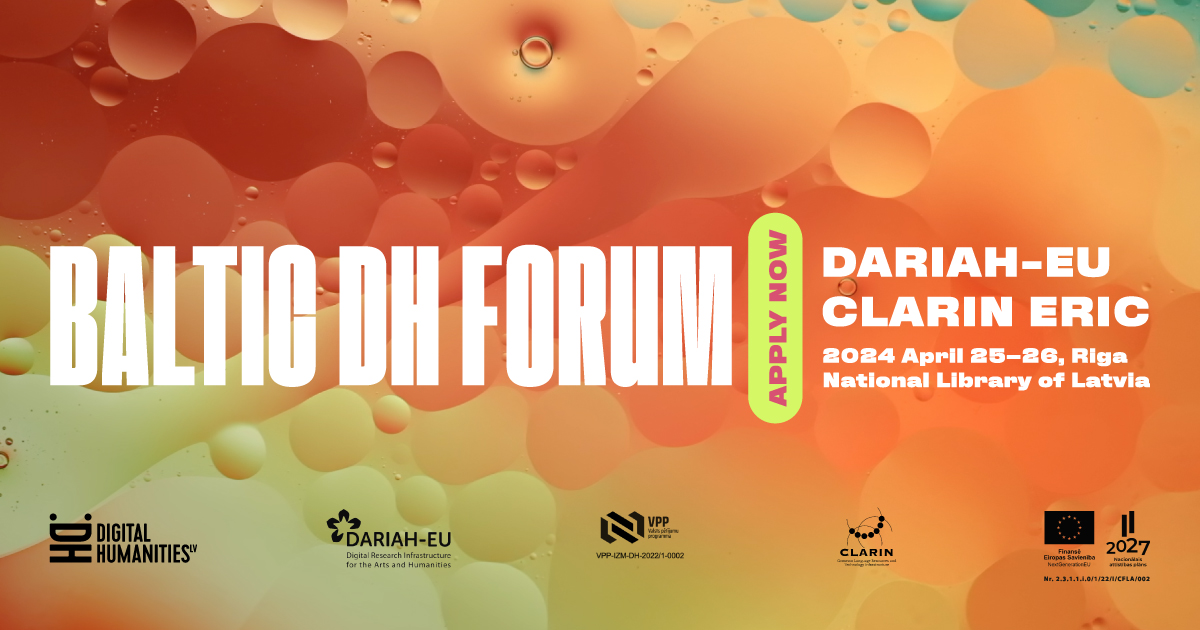
Digital humanities researchers, practitioners and developers are invited to participate in the Baltic DH Forum scheduled for April 25–26, 2024 in Riga!
- Dates: April 25–26, 2024
- Location: National Library of Latvia, Riga
- Participation Fee: None
- Deadline for Applications: January 25, 2024
- Event Website: http://www.digitalhumanities.lv/baltic-dh-forum-2024
Digital humanities have become a solid part of the research landscapes in the Baltic countries. Over the recent decades, this transformation has been evident through the vibrant and enthusiastic DH communities, the emergence of new research groups and centers, and the increasing presence of digital humanities courses and programs in higher education. This marks the right time for the digital humanities communities of the three Baltic States to come together, to look at how and in what directions DH has developed in our countries, to reflect on what is relevant today and to project what lies ahead in the near future.
The Baltic DH Forum spans two days, with the first day hosting sessions by speakers from Baltic DH communities and European infrastructures. The second day focuses on networking, presenting DH projects, digital tools, and educational initiatives, complemented by workshops on collaborative projects and fundraising strategies.
Apply now for participation in the Baltic DH Forum's "Demonstration and Networking Session" on the second day here by submitting a 200–250-word abstract in one of 3 categories – DH resource or tool, a Research Project, or an Educational initiative. Submissions across diverse areas related to digital humanities are encouraged!
The Baltic DH Forum is a collaborative effort organized in partnership with DARIAH-EU and CLARIN ERIC, led by the program committee comprised of researchers from all three Baltic countries. The event is financially supported by the Language Technology Initiative, funded by the European Union and the National Development Plan and the project "Towards Development of Open and FAIR Digital Humanities Ecosystem in Latvia" (VPP-IZM-DH-2022/1-0002) funded by the Latvian Council of Science.
Contact information: [email protected]
Third digitalhumanities.lv seminar
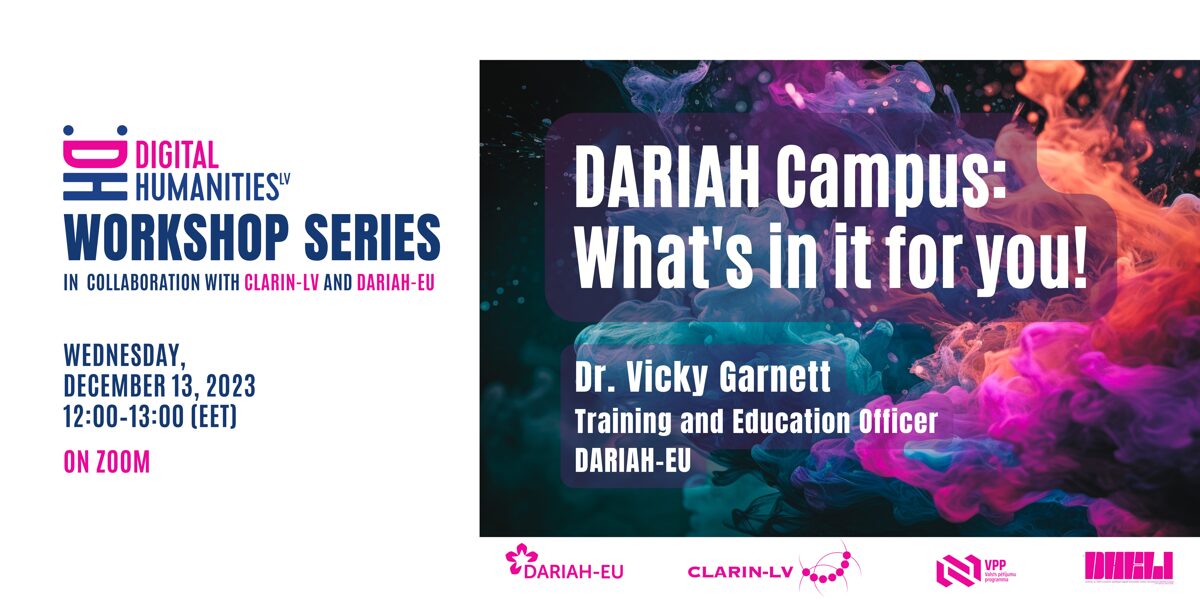
Stuart Dunn's online seminar on methodological pluralism
 Riga Technical University announces series of online seminars organized by RTU Faculty of E-Learning Technologies and Humanities in collaboration with King’s College London. Seminars will be hosted by Stuart Dunn, Professor of Spatial Humanities, Department of Digital Humanities, King’s College London.
Riga Technical University announces series of online seminars organized by RTU Faculty of E-Learning Technologies and Humanities in collaboration with King’s College London. Seminars will be hosted by Stuart Dunn, Professor of Spatial Humanities, Department of Digital Humanities, King’s College London.There will be two seminars on 27th November and 11th December, 2:30 PM - 4 PM EET (12:30 PM - 2 PM GMT).
The first seminar will be dedicated to - Methodological Pluralism: Study Design and Implementation from the Social Sciences to DH.
How do you design a research project in the Digital Humanities (DH)? This is a far more diffuse and abstract question than one might encounter in more “conventional” branches of the humanities, and certainly more so than would come across in the social sciences, where study design practice is, more or less, a discipline in its own right. This lecture will look at some of these practices, and consider how they can (and can’t) translate to the domain of DH. How can we use the lessons of other domains to bring nuance and greater rationalization to the distinction between qualitative and quantitative data (or indeed knowledge)? I will use as my starting point an old blog post that I wrote addressing this question, and go on to illustrate some possible answers from the more recent Routledge International Handbook of Research Methods in Digital Humanities (2020), of which I was co-editor.
Registration for the conference "Recent Language Resources and Tools for Digital Humanities"
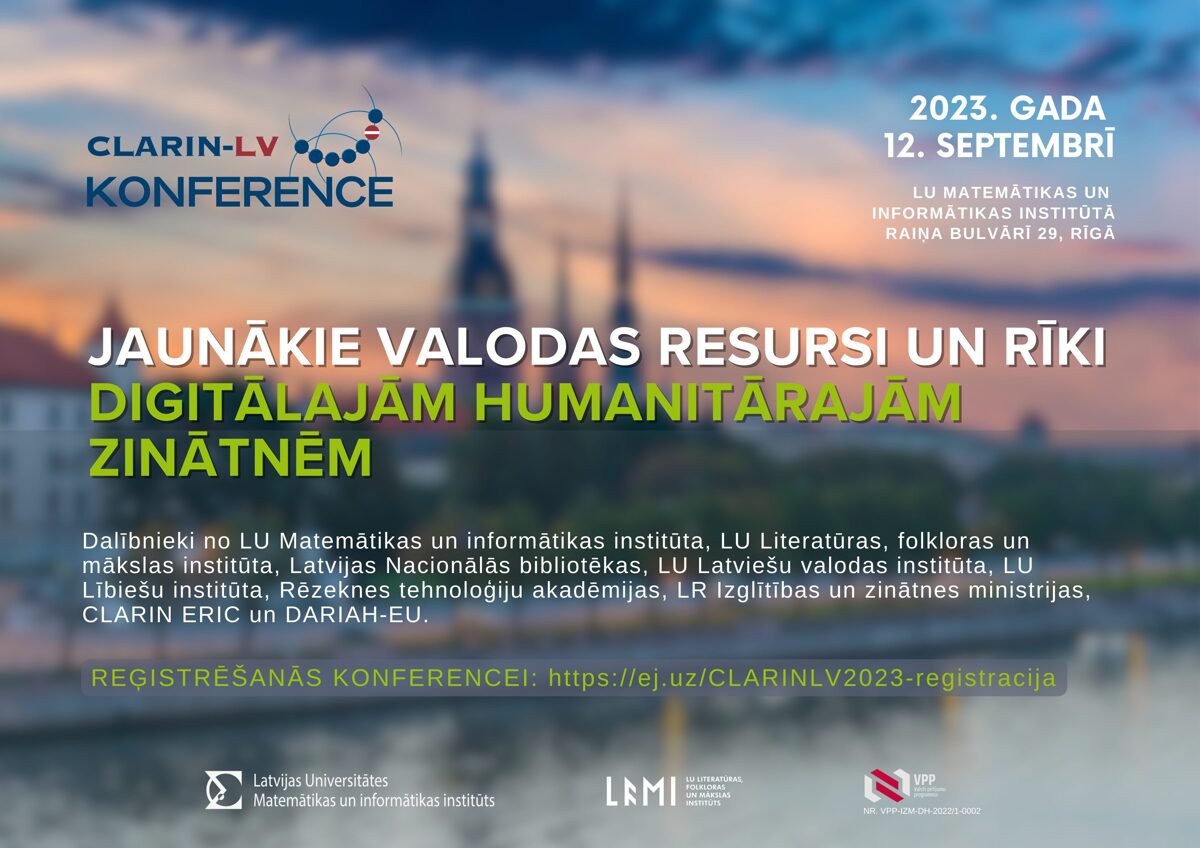
We invite you to participate in the conference "Recent Language Resources and Tools for Digital Humanities", which will take place on 12 September 2023, 13.00-17.00, at the Institute of Mathematics and Informatics, University of Latvia, 29 Raiņa Boulevard.
Conference registration: https://ej.uz/CLARINLV-registracija
More about the conference programme: https://clarin.lv/lv/
Open lectures of Baltic Summer School of Digital Humanities
25 July, from 9.10
Episode No.2 of the Digital Humanities podcast
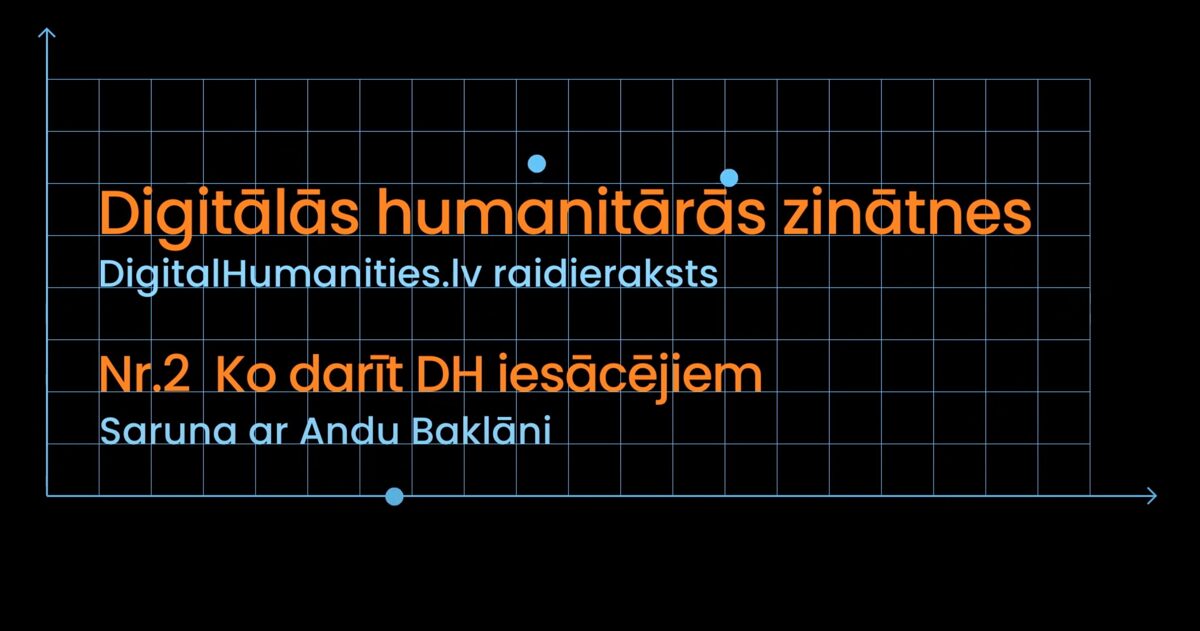
Applications for the Baltic Summer School of Digital Humanities open until 10 July
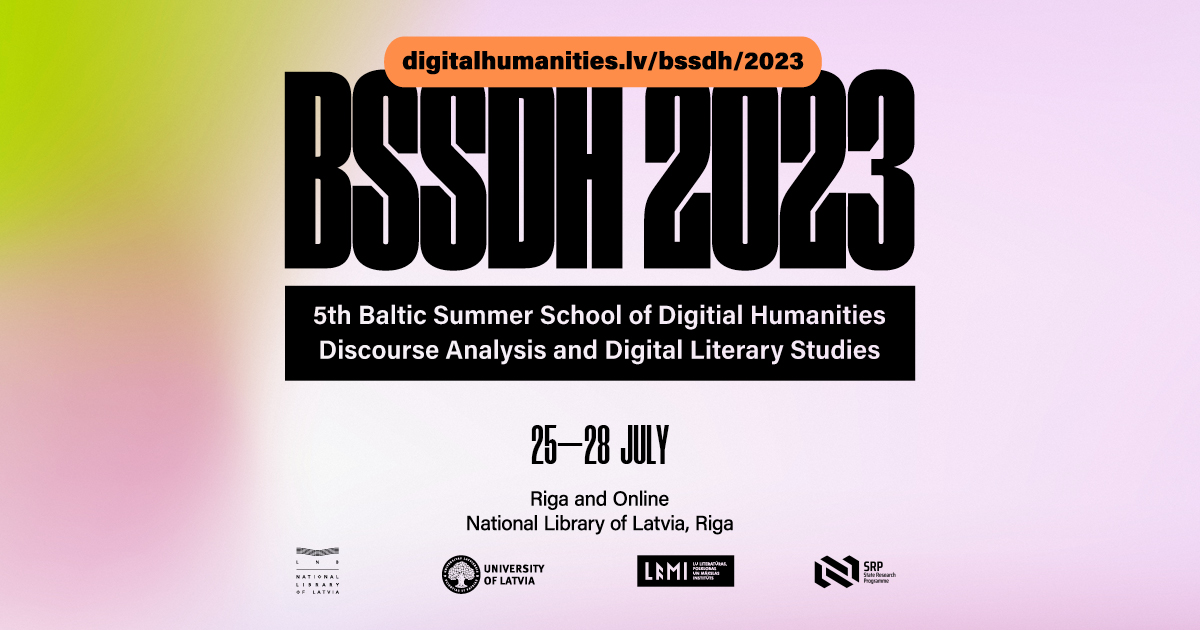
From 25 to 28 July, the DHELI project will host the Baltic Summer School of Digital Humanities (BSSDH2023) in Riga.
We encourage applications from students and researchers who might be interested in the following topics:
Registration information (deadline for applications is 10 July, but we will close earlier if all places are filled): http://www.digitalhumanities.lv/bssdh/2023/about/
Helsinki Digital Humanities Hackathon #DHH23
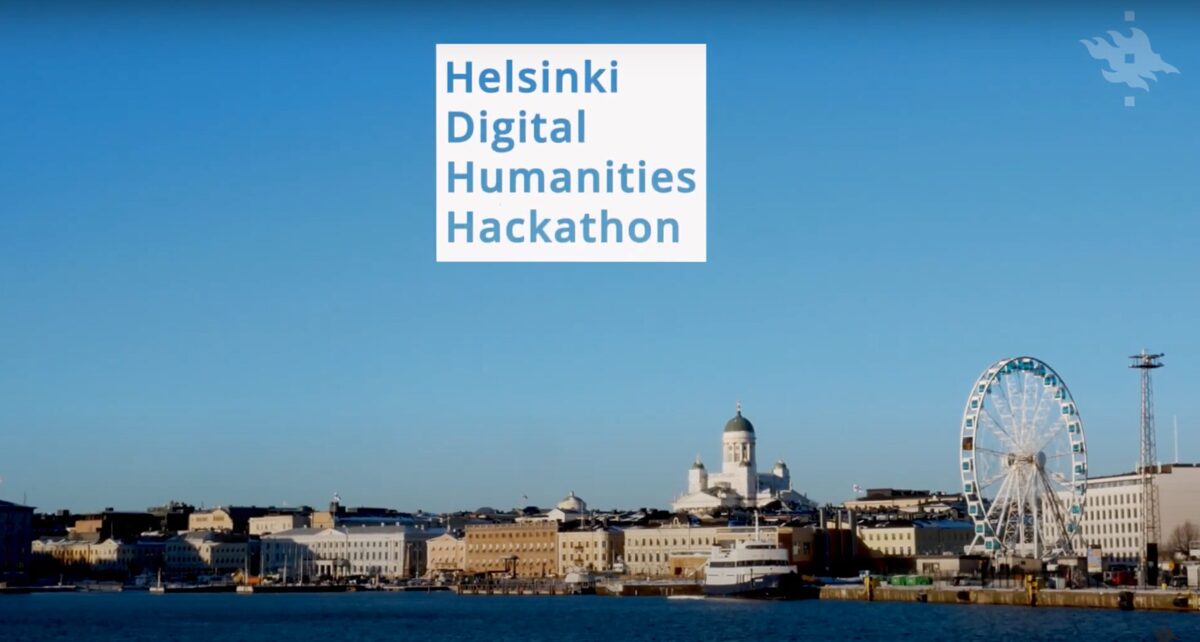
From May 23 to June 3, a hackathon on digital humanities was held in Helsinki, which was attended by Haralds Matulis, the coordinator of the DHELI project.
Haralds reports on his experience in Helsinki: "Around 50 people from different countries participated in the hackathon, divided into four research groups. I participated in the 'Interactional Dynamics of Online Discussions' group. The research data came from an 'incel' forum. The aim of the study was to investigate how forum participants communicate, what makes for constructive and non-constructive discussions, what understandings there are of their own group and external groups, what language structures are used to achieve discussion goals. During the study, various methods of digital humanities were tested and applied to internet forum data. Participating in the hackathon gave me the opportunity to test several digital humanities methods in practice and to take part in data processing workflows carried out by research group members - using methods such as sentiment analysis, topic modeling, registry research, corpus linguistics, and working with large data sets."
More information about the hackathon: https://www.helsinki.fi/en/digital-humanities/dhh23-hackathon/dhh23-themes
Registration for the Baltic Summer School of Digital Humanities 2023 is open
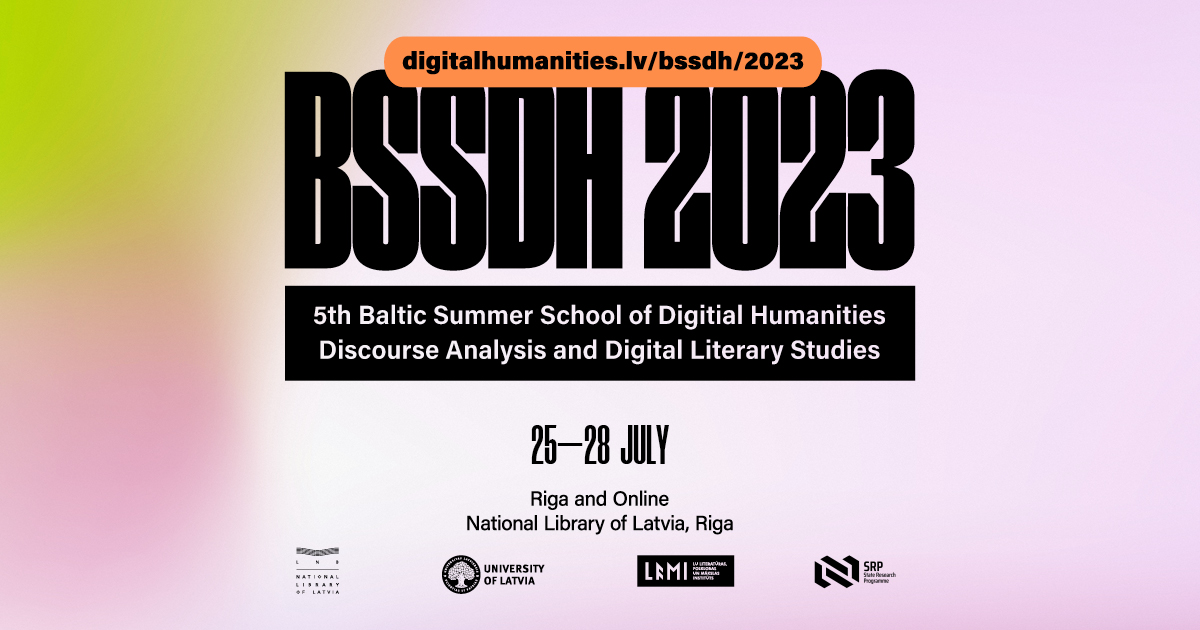
Students, researchers, and GLAM professionals are welcome to enrol in the Baltic Summer School of Digital Humanities: Discourse Analysis and Digital Literary Studies, which will be held on 25-28 July 2023 at the National Library of Latvia (NLL) and Online.
The Baltic Summer School of Digital Humanities is an international intensive continuing education programme that provides the opportunity to researchers, educators, and students of humanities and social sciences, as well as archive, library and museum professionals to master various digital research skills, from data wrangling and analysis to visualisation.
Episode 1 of the Digital Humanities podcast
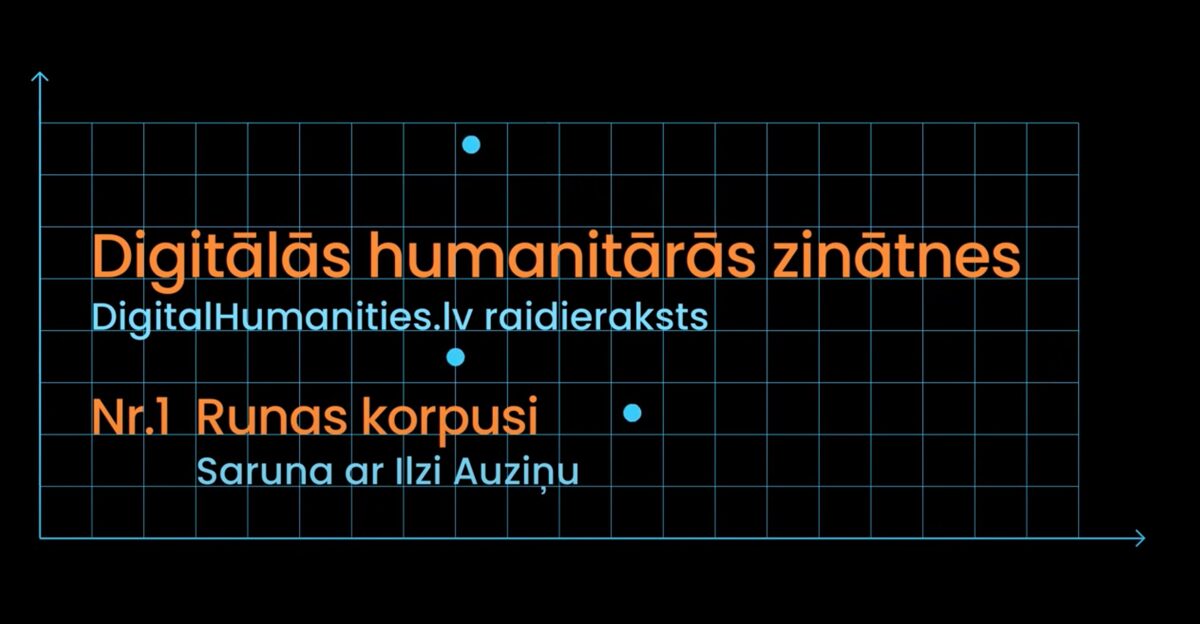
The first episode of the Digital Humanities podcast "Speech Corpora" has been released, in which Haralds Matulis talks to Ilze Auziņa, a senior researcher at the Institute of Mathematics and Informatics at the University of Latvia.
Workshop on the development and use of speech corpora on 18 May
